
| Title |
Professor |
| Field |
Public Administration, Civil Service System, Human Resource Management in the Public Sector |
| Message |
In Japan, public officials have been decreasing to a considerably smaller number than in other countries. Their list of duties is increasing due to new policy needs. Given the financial situation, how can we efficiently manage the administration while human resources cannot be easily expanded? Your country will face the same problem. We can analyze whether the administrative organization can be applied to the environment, whether this personnel administration raises motivation, or whether inter-organization cooperation is accorded. |
| Profile |
Completed the doctoral course at the Graduate School of Public Administration, International Christian University, Ph.D. She has been in the Graduate School of Governance Studies, Meiji University since 2021 after working as a researcher at the Institute of Administrative Management, a lecturer and an associate professor at the Faculty of Political Science and Economics, Tokai University. Members of the governmental committees related to personnel evaluation and the pay system of public officials, management evaluation in the activities of local governments and affiliated organizations, a lecturer on the training of public officials in the Local Public Service Act, a member of the board of directors in the Japanese Society of Public Administration, and others. |
| Courses Taught |
・Governance Studies ・Intergovernmental Relations ・Public Employment and Personnel Management ・Research Method 2 ・Research Paper 1&2 |
| Faculty Database |
Click here to see. |
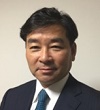
| Title |
Professor |
| Field |
Public Economics, Dynamic Macroeconomics, and Applied Microeconomics. |
| Message |
Many of issues in our modern society seem to be money-related, and many conflicts among different groups rise from the distribution of wealth. In order to logically understand complicated conflicts as well as to prescribe remedies for such conflicts, economics can help us scientifically approach them. By using the economics framework, we can try to provide some solutions for the problems you particularly have at your workplace and in your country. |
| Profile |
Before Ryuta Ray Kato joined the Graduate School of Governance Studies in April 2018, he was teaching at Shiga University and International University of Japan. While he belonged to Shiga University, he was a research fellow of Economy Planning Agency of the Government of Japan, as well as Economic and Social Research Institute of Cabinet Office of the Government of Japan. He was also a senior research fellow at Imperial College of the University of London. Recent papers have appeared in Japan and the World Economy, Journal of the Japanese and International Economies, Review of Economics & Finance, Journal of Economics and Political Economy, Public Policy Review, International Journal of Health Care Finance and Economics, and Japanese Journal of Social Security Policy.
PhD University of Essex, UK (2000)
MA University of Essex (1996), and Yokohama National University (1990)
BA Chuo University (1986)
|
| Courses Taught |
・Economics A & B ・Econometrics A & B ・Research Method 1&2 ・Research Paper 1&2 |
| Faculty Database |
Click here to see. |

| Title |
Professor |
| Field |
Administrative Law, Public Administration, Local Public System, Comparative Law |
| Message |
Japanese governments which are composed of the central government and the local governments are carrying out the administrative activities through enacting the national laws and the bylaws. I have experienced planning the systems, draft of the laws and the bylaws as the personnel of the Ministry of Internal Affairs and Communications. In the standpoint of public administrations, a comparative analysis of the central government and the local governments is very effective for figuring out the frame of the governmental system. In the lectures I shall try to identify the specific characteristics of Japanese administrative systems. |
| Profile |
1986 Join the Ministry of Internal Affairs and Communications (MIC)
1990 Section Chief of Policy Planning Division of MIC
1994 Director of the Finance Division of Gifu Prefecture
2001 Deputy Director of Public Enterprise Division
2003 Deputy Mayor of Matsuyama City
2008 Director of Foreign Inhabitant Registration Book System and Counsellor for Local Finance System
2013 Professor of Hitotsubashi University
|
| Courses Taught |
・Cutting-edge Local Government Policies ・Citizen's Participation and Local Governance ・Research Method 2 ・Research Paper 1&2 |
| Faculty Database |
Click here to see. |
| Main literary works (English) |
“Regional administration in Japan: Departure from Uniformity”(Routledge, 2017)
“Decentralization and Development of Sri Lanka Within a Unitary State ” (Collective writing:Springer, 2017)
“Metropoles en chantier.Volume2”(Collective writing:Berger Levraut, 2018)
|
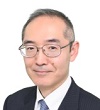
| Title |
Professor |
| Field |
International relations, Politics, Criminal law |
| Message |
Crisis management studies at public policy school cover broad areas, including international conflicts, terrorism, public safety, natural disasters, and network security. They also deal with the most of the important academic issues of governance studies such as public-private relations, coordination of interests of multiple stakeholders and leadership. While ‘the unity of theory and practice’ is the critical element for crisis management studies, one of the great advantages at Meiji University is the fact that we have students and faculty members with a variety of different backgrounds from several different countries, some of whom have actual experiences to deal with real crisis situations. I hope every student in our classes will have exciting experiences to improve his/her own understanding of crisis management, enjoying such an advantage of our school. |
| Profile |
Dr. Kobayashi is a former Cabinet Intelligence Officer (CIO) for counter-terrorism at the Cabinet Intelligence and Research Office (CIRO), responsible for assessing terrorism threats representing Japan’ s intelligence community. Prior to joining Meiji University in 2019, He had worked for the Government of Japan for more than three decades, taking a variety of positions at the National Police Agency, Ministry of Foreign Affairs, Cabinet Secretariat and so on, mostly focusing on national security and public safety matters. He was also stationed at the U.S., Canada and Hong Kong, spending nine years abroad. He holds a Ph.D. in international studies from Waseda University, an M.I.P.P. from the George Washington University, a LL.B. form University of Tokyo, and two other master degrees. He is an author of several academic articles on national security and public safety. |
| Courses Taught |
・Terrorism and Political Violence ・National Security and Intelligence ・Research Method 2 ・Research Paper 1&2
|
| Faculty Database |
Click here to see. |

| Title |
Senior Assistant Professor |
| Message |
Given the number of converging global issues ahead, food security will continue to remain a top priority at the global, national, and regional level. Achieving greater sustainability and resilience in our food systems involves envisioning more socially sensible forms of food production and consumption. Agriculture is also closely linked to issues of economic equality in rural development and rural revitalization. I hope students interested in these topics will contribute to the courses offered with their unique experiences and background. |
| Profile |
After completing a MA in International Relation at Waseda University, He worked for three years in an agricultural corporation in Italy. He then decided to pursue research on rural revitalization in Japan and completed a doctoral degree in Social Anthropology at Oxford University, St. Peter’s College. Under the Covid pandemic, he established and ran a small organic farm based on agroecology principles. A book based on his doctoral dissertation will be published by Routledge in 2023. |
| Courses Taught |
・Contemporary Japanese Society ・The Political economy of food and agriculture ・Local development in Japan ・Local responses to agricultural issues in Japan ・Research Method 2 ・Research Paper 1&2 |

| Title |
Assistant Professor |
| Field |
Political Theory |
| Message |
Concerns about the dysfunction of modern democracy have grown in recent years. Today, the rise of right-wing populism and public 'apathy' towards politics are critical issues in political science. Is there a way out of this so-called 'crisis of democracy'? And what are the underlying causes of this political situation? Untangling the complexities of modern democracy by exposing the gap between its theory and reality has become increasingly important. I would like to work with students who are eager to tackle unresolved political questions. |
| Profile |
She earned her Ph.D. in Political Science from the Graduate School of Political Science and Economics, Meiji University. Prior to joining the faculty of the Graduate School of Governance Studies at Meiji University, she served as a JSPS Research Fellow (2019-2021) and taught area studies and political science at Nihon University's College of Risk Management and Surugadai University's Faculty of Law as an adjunct instructor. Her research specializes in democratic theory, applying the methodology of subaltern studies, with a focus on the local self-government system in India. |
| Courses Taught |
・Introduction to Political Science ・Theories of Democracy ・Current Dev in Public Policy and Management ・Critical Reading and Writing |
| Facutly Database |
Click here to see. |

| Title |
Assistant Professor |
| Field |
Urban Planning, Community Development, Multicultural Society, Immigration, gender in planning, Qualitative Research Methods |
| Message |
Today we live in an era where people work together with individuals from diverse backgrounds. In a time of ongoing globalization, accompanied by an increased wealth-poverty gap, the question of how cities should incorporate those left behind by this process, particularly at the point of local communities, is assuming paramount importance. By examining and coming to understand multifaceted situations, I hope we can all join in exploring new ways to build communities that support members and solve shared problems. |
| Profile |
Dr. Matsumoto was appointed as an assistant professor at the Graduate School of Governance Studies, Meiji University, in 2022. Upon graduation from Keio University with a master’s degree in Media and Governance, she was awarded a Fulbright Scholarship to work towards her doctoral degree at the University of Maryland, College Park, where she earned a Ph.D. in Urban and Regional Planning and Design. Dr. Matsumoto has taught urban planning and policy at Columbia University, Keio University, and other universities as an adjunct instructor. In 2021 she was awarded a Keio SFC faculty award for her teaching. She has also conducted various urban policy and design research projects as a visiting scholar at Keio Research Institute at SFC and Kuchokai Institute for Research and Study. |
| Courses Taught |
・Analyzing and Writing in Qualitative Res ・Masters Thesis Development ・Qualitative Research Methods ・Multicultural Society
|
| Facutly Database |
Click here to see. |
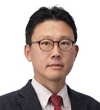
| Title |
Associate dean of the Graduate School of Governance Studies,Professor |
| Field |
Negotiation, consensus building, public participation, and deliberative democracy in the fields of urban and regional planning, environmental policy, energy policy, science policy, and many other areas of public policy. |
| Message |
Most of the emerging public policy issues in recent years are often characterized as wicked problems. Dealing with the global challenges such as climate change, mega cities, and sustainable development all require well-managed transformations in institutions and norms under the high level of uncertainties. I am interested in exploring the practice that encourages democratic negotiation, participation, and consensus building for fair and efficient solutions as well as future-oriented deliberations for dealing with emerging wicked problems. I hope you will join us for action-oriented learning experience and explore these emerging challenges with us. |
| Profile |
Graduated from the Department of Civil Engineering, the University of Tokyo. Finished the Master in City Planning and Ph.D. (Urban and Regional Planning) programs at the Department of Urban Studies and Planning, Massachusetts Institute of Technology. Worked for Mitsubishi Research Institute for assisting participatory processes for national and regional planning projects. Taught at the University of Tokyo’s School of Public Policy as an assistant professor with focus on energy, environment, marine, and science polices. Appointed to the current position in April 2016. Head of the Democracy Design Lab., a not for profit organization promoting better design of participatory planning. Has provided many training courses and lectures for international students as well as aid agencies such as JICA. |
| Courses Taught |
・Urban Spatial Policy ・Introduction to Public Policy Analysis ・Negotiation in the Public Sector
・Consensus Building in the Public Sector ・Research Method 1&2 ・Research Paper 1&2 |
| Faculty Database |
Click here to see. |
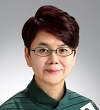
| Title |
Professor |
| Message |
Our society is challenged by increasingly complex and dynamic problems with no clear model for solution. When dealing with complex problems, the past does not necessarily predict the future. Emerging governance model with stakeholder engagement could indicate a path to innovative initiatives to solve social issues. My research interests are in evaluative thinking that allows learning and adaptive management in policy formulation and implementation with various stakeholders. Focusing on specific social development context, let us search together clues for social betterment. |
| Profile |
After graduating from International Christian University, she earned MA in Global Management from Thunderbird School of Global Management in the USA and Ph.D. in Tokyo Institute of Technology. After working for the Japan International Cooperation Agency (JICA) and the Foundation for Advanced Studies on International Development (FASID), she has engaged in research and development of evaluation systems and methods for JICA, the World Bank and NGOs as international development consultant. Recently she also deals with policy/program evaluations of Ministries and local governments in Japan. She is currently a vice president of the Japan Evaluation Society (JES). |
| Courses Taught |
・Evaluation Theory and Practice ・Social Development ・Current Development in Public Policy and Management ・Research Method 2 ・Reseach Paper 1&2
|
| Facutly Database |
Click here to see. |

| Title |
Dean of the Graduate School of Governance Studies, Professor |
| Message |
In recent decades, as modernization has prevailed all over the world, traditional local communities drastically lost its importance on human life, and both the nation states and market economy play much important roles for fulfilling various needs of the people. However, no one denies that there are serious problems which can be solved neither by public sector nor by the private companies alone. It becomes inevitable to have collaborative actions involving non-profit private organizations (NPOs / NGOs) for overcoming complicated issues in modernized societies. The emergence of NPOs can be regarded as an indication of active civil participation in the process of self-governance. |
| Profile |
After graduating from the University of Tokyo, he completed master’s program at the graduate school of Global Studies, Sophia University. Then, he joined a Japanese NGO that has development projects in the South Asian countries and worked there for 14 years including four year stay at Dhaka as a country director. In 2004, he established own NPO in Tokyo aiming at promoting mutual learning network among practitioners and policy makers on community development both in Japan and in the developing countries. His NPO implements various capacity development activities for government officials and NGO leaders in Asian countries. He also facilitates training courses on participatory community development implemented by JICA (Japan International Cooperation Agency). |
| Courses Taught |
・NGO/NPO Policy ・NGO/NPO Management ・Human Resource Management ・Community Engagement and Facilitation ・Research Method 2 ・Research Paper 1&2 |
| Faculty Database |
Click here to see. |
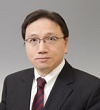
| Title |
Professor |
| Field |
Policy Evaluation, Public Management |
| Message |
“Theory without practice is empty, and practice without theory is blind.” The great thinkers of the world have often introduced this motto. How can we merge theory and practice? This is a difficult question to answer. However, even if these two are parallel, if we can pursue theory and practice for the same direction just as the two wheels of a cart, we can go ahead through absorbing the strengths of each other. I would like students to earn capacity to manage the cart through the learning and research activities at our school. |
| Profile |
Up to the present position, He dedicated his own career to Fukui Prefectural Government (1988-2005), University Evaluation Center at University of Ryukus as associate professor (2005-2009), and the School of Policy Studies at Iwate Prefectural University as associate professor and professor (2009-2018). He earned Master of Public Administration and Master of Arts in Economics from the Maxwell School of Public Affairs and Citizenship at Syracuse University (2000-2002). He also attended PhD. program in Public Management at Waseda University (2006-2010, 2012-2015). He was engaged in the Evans School of Public Policy at University of Washington as visiting scholar for research on performance management system in the U.S. governments. He serves on academic societies as advisory board member, and on governmental bodies tasked with improving the administrative system. |
| Courses Taught |
・TQM in Public Sector ・Quality Management in Japanese Public Sector ・Research Method 2 ・Research Paper 1&2 |
| Faculty Database |
Click here to see. |
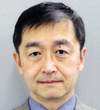
| Title |
Professor |
| Message |
My area of interest lies in global governance, local governance and their linkage in forming public space. I am particularly interested in analyzing how the governance is, and can be, related to development and security from the perspectives of international relations. I have a 30 year - experience as a practitioner in the field of development while conducting research and teaching at universities. My main area focus has been on sub-Saharan Africa while having strong interest in other areas such as Asia. |
| Profile |
After graduating in law from Chuo University (political science), he earned master of public administration from Kennedy School, Harvard and Ph.D. in social science from Waseda University. While working for Japan International Cooperation Agency (JICA) between 1981 and 2011, he worked as an advisor to the Ministry of Finance and Planning in Uganda, senior advisor for Institute for International Cooperation, special advisor in JICA Tanzania office, senior research fellow at JICA Research Institute. He also served as the visiting professor of Tokyo University of Foreign Studies, professor of National Graduate Institute for Policy Studies, and vice president of TICAD Civil Society Forum. |
| Courses Taught |
・Government and Politics in Developing Countries ・Global Topics and Issues ・Global Governance ・Japanese Foreign and Development Policy ・Research Method 2 ・Research Paper 1&2 |
| Faculty Database |
Click here to see. |

| Title |
Professor |
| Field |
Public economics and labor economics, Criminal law, Cultural anthropology and folklore, Economic doctrines and economic thought, Education |
| Message |
Management in the modern public sector (central and local governments, etc.) is becoming more diverse, complex, and difficult. This is because in addition to the problem of failures by the government, the relationships and transactions between government and stakeholders including the citizens, companies, and non-profit organizations have become important. "Governance" is a mechanism for solving social problems. Everyone is required to understand and practice governance. For this reason, the ability and experience for theory and empirical demonstration, and for analyzing and solving problems, is necessary. Let us all think about governance together. |
| Profile |
Graduated from the School of Engineering at the Tokyo Institute of Technology, and completed graduate school at the same university. London School of Economics Masters degree (social security policy), National Graduate Institute for Policy Studies Doctorate (policy studies). In 1985 joined the Ministry of Finance, and worked on budgets, government investment and loans, free trade negotiations, reform of the central government ministries and agencies, etc., while working at the National Tax Agency, Cabinet Secretariat, Cabinet Office, Ministry of Foreign Affairs (Embassy of Japan in Malaysia), Ministry of Health and Welfare (now the Ministry of Health, Labour and Welfare), etc. Furthermore, engaged in education and research at Australian National University from 2003 to 2005 and Institute of Economic Research, Hitotsubashi University from 2007 to 2010. Has also participated in the projects of Japan International Cooperation Agency (JICA), Organisation for Economic Co-operation and Development (OECD), International Monetary Fund (IMF), and other organizations. |
| Courses Taught |
・Public Financial Management ・Public Finance and Social Welfare ・Research Method 1&2 ・Research Paper 1&2 |
| Faculty Database |
Click here to see. |
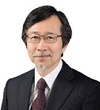
| Title |
Professor |
| Field |
Comparative study on environmental policies. Environmental policy implementation and stakeholder participation. |
| Message |
In the past, environmental protection was regarded as an inhibition factor to economic development. Later, recognition that economic development should be in harmony with environmental protection became prevalent. Further changes of the view are occurring, from the harmony to "win-win" relationship of those, as symbolized by ESG investment. On the other hand, we are facing a critical situation of the environment such as global warming. We will discuss how we should tackle the situation in the changing society. |
| Profile |
He graduated from University of Tokyo (Faculty of Science) in 1984, and joined the Environment Agency (current Ministry of the Environment), Japan, where he handled water quality, environmental assessment, wildlife protection, and international cooperation. He also worked for the Ministry of Health and Welfare (current Ministry of Health, Labor and Welfare), Japan, on drinking water quality, and the Overseas Economic Cooperation Fund (current Japan International Cooperation Agency), and undertook research activities on water management in the Ministry of the Environment, France. In 1998-2014, he worked for Asian Development Bank and promoted environmental agenda. He taught environmental management and sustainable development in Tohoku University and Sophia University, and has been undertaking research in the Institute for Global Environmental Strategies. Before joining Meiji University, he was Senior Advisor on Environmental Management in JICA. He has a Ph.D. in Social Governance (Hosei University). |
| Courses Taught |
・Environmental Governance ・Environmental Management ・Environmental Assessment ・Research Method 2 ・Research Paper 1&2 |
| Faculty Database |
Click here to see. |
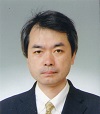
| Title |
Professor |
| Field |
E-Government, E-voting, Protection of Personal Information and Privacy, Law of Cyber Security |
| Message |
In order to realize e-government and e-local government, it is necessary to consider not only knowledge and ability about computers and software, but also from the wide range of perspectives such as legal system, budget system, human resource allocation and institutional and organizational issues, protection and security of personal information and others.
I hope you will join us for studying the governance about the issues surrounding e-government.
|
| Profile |
Prof. Harumichi Yuasa has been Professor, Graduate School of Governance Studies, Meiji University since 2021.
Previous academic positions include Vice President and Professor at Institute of Information Security , Vice President and Professor at Kyusyu Kokusai University.
His research is focusing on legal and political aspects of internet and information society including protecting privacy and personal information, administrative information handling and disclosure, regulation of cyber police and defense activities, internet election campaign and e-voting.
Prof. Yuasa is also serving as Director of Japan Cybercrime Control Center (JC3), Information Security Advisor to Ministry of the Environment, and others.
|
| Courses Taught |
・E-Government ・E-Participation ・Global Cyber Governance ・Research Method 2 ・Research Paper 1&2
|
| Faculty Database |
Click here to see. |

















